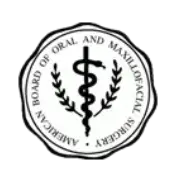8 Everyday Habits That Harm Your Smile
Your teeth are supposed to last a lifetime. But some common habits could be reducing the durability of your teeth without you even realizing it.
By recognizing the habits that can compromise the structure and health of your smile, you can take steps to protect it.
-
Avoiding Regular Dental Care
Many individuals skip regular dental cleanings or avoid getting necessary procedures due to anxiety, a lack of time, or other personal reasons. However, doing so can cause tooth decay, gum disease, and other common oral health issues.
As such, you should be sure to visit the dentist every 6 months for a professional cleaning and also, as necessary, if you notice a change or issue with your teeth.
-
Brushing Too Hard
Brushing is an essential component of good oral health, but not when done incorrectly. Brushing too hard can wear down enamel, irritate your gums, increase your teeth's sensitivity, and cause cavities.
By purchasing a soft bristled or an electronic toothbrush, you can avoid the damage while still cleaning your teeth and removing plaque.
-
Using the Wrong Materials to Clean Teeth
Have you ever had something stuck in your teeth and not had floss? If so, you might have reached for things like paper clips, toothpicks, or even pieces of paper that easily slide between your teeth. However, each of these items can cause gum and tooth damage.
You can easily resolve this problem by keeping a small container of floss or an interdental cleaner in your purse, backpack or car.
-
Grinding Your Teeth or Clenching Your Jaw
Many Americans grind their teeth or clench their jaw, which can cause fractures or other damage and may lead to headaches and jaw pain. If grinding or clenching happens while sleeping, a night guard that cushions your teeth and reduces impact on your jaw can help. If it happens during the day, chewing gum may help to prevent it.
-
Biting Your Nails, Pens, Ice, or Other Hard Objects
When you bite your nails, chew on pens, or crunch ice or even hard candy, you could be causing splinters and cracks in your teeth. But that's not all!
In fact, biting any foreign object can also introduce bacteria into your mouth and cause infections. By eliminating these bad habits, you can keep your teeth protected and eliminate additional germs in your mouth.
-
Using Your Teeth Improperly
How often do you bite open a package or try to cut something with your teeth? You may do it without thinking twice and probably more frequently than you realize.
Biting even just a thread off of your shirt could cause micro cracks that, over time, can lead to more serious structural damage. It's easy to avoid this by grabbing for a can opener, knife, or pair of scissors instead.
-
Drinking Soda, Sports Drinks, and Alcohol
While everything is acceptable in moderation, soda, sports drinks, and wine can cause significant damage when consumed in large amounts. Sports drinks and soda, which contain acid and sugar that feed bacteria and erode enamel, leave teeth susceptible to cavities.
Alcohol contains acid that produces similar effects. Additionally, because alcohol dries out the mouth, it reduces saliva production and allows bacteria and plaque to thrive.
By limiting your consumption of all of these drinks, you can do your part to keep your teeth protected.
-
Tobacco Use
If you smoke cigarettes or cigars or use chewing tobacco, you're also at risk. Nicotine not only yellows teeth, it also can cause oral cancer. Chewing tobacco is even worse because carcinogens directly contact gum tissues and can remain there for a long time.
While quitting any tobacco use is difficult, it's worth it when you consider the oral (and general) health risks of daily, or even infrequent, use.
Transform Your Everyday Habits From Harmful to Beneficial
While the habits described above are harmful, there are simple ways to correct them. Transforming destructive habits into protective measures can keep your teeth looking great for years to come.
Sources:
http://www.nusmiledentalfl.com/blog/2014/november/everyday-habits-that-can-harm-your-teeth.aspx
http://www.webmd.com/oral-health/features/your-teeth-bad-habits?






4.9 Stars
based on 134 reviews
5 Stars
based on 11 reviews
5 Stars
based on 11 ratings